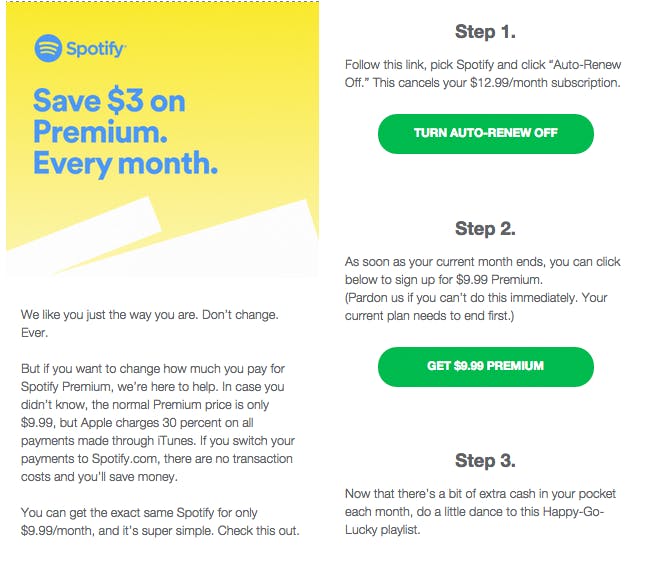If this week’s earnings report didn’t already make it abundantly clear: Apple is really good at making money. So good, in fact, that the California-based company has caught the eye of the Federal Trade Commission, which is looking into the company’s handling of rival music streaming services on its App Store.
It’s a big mess of technology and politics, with plenty of allegations of wrongdoing, accusations of monopoly-like behavior, and lots and lots of money. I’m here to break it all down in much more easily digestible terms and turn you into a veritable expert on the entire affair. Let’s get started.
Who is in trouble?
Nobody, yet. Apple has been under the watchful eye of the FTC for some time now, and the FTC played a big role in the lawsuit the United States filed against the company and others in 2013 over alleged price fixing of ebooks. Apple was found to be in violation of the Sherman act, which is designed to prevent would-be competitors from conspiring to raise prices universally.
You can bet that the FTC was already doing their research on Apple’s impact on streaming music services prior to the recent launch of Apple Music, but now the commission is under pressure to actually do something, thanks in part to figures like Sen. Al Franken (D—Minn.) who have publicly demanded results.
What did Apple do?
Apple runs the iTunes App Store, which sells all the games and utilities and social apps that litter your iPhone or iPad home screen, but it doesn’t host the sale of those apps for free. Apple’s cut is 30 percent of every transaction that takes place on its own marketplace—this is in line with most digital shops, and isn’t anything out of the ordinary—and since streaming services such as Spotify can only be downloaded to an iOS device via the App Store, they also fall under that umbrella.
Spotify and its kin are free to download, and Apple can’t take a cut of nothing, so those downloads aren’t the issue. However, when a customer using the Spotify app wants to subscribe to Spotify’s premium service, that transaction takes place via an in-app purchase which goes through the App Store and is then subject to Apple’s 30 percent fee.
So, for example, a subscriber of Spotify’s premium tier of service who signed up via the iOS app will only be paying Spotify 70 percent of the money they send, and Apple takes the rest.
Where does Apple Music fit in?
Apple is now a direct competitor to Spotify and other streaming music apps thanks to its launch of Apple Music. Apple has priced a solo membership to Apple Music at $9.99 per month, and since Apple hosts its own apps for sale, the company is obviously collecting that full amount.
Spotify, on the other hand, also charges $9.99 per month for its premium service, but only if you subscribe via the company’s website. If you were to subscribe from directly within the app itself, you would be charged $12.99 per month because Spotify still needs to make its standard fee while also paying off Apple for the privilege of selling its wares via the App Store.
This alone probably wouldn’t be enough to get Apple in any kind of trouble, given the fact that the company built its own App Store and the fee for selling software and subscriptions on it is universal for every app maker across the board. Apple isn’t treating Spotify badly, it’s simply applying the same math that it applies to literally every single other app.
Why does the FTC care?
While its fee structure is almost certainly a non issue, Apple’s guidelines for its marketplace are rigid, and often poorly implemented. One of the rules at issue here is Apple’s prohibition of links to external purchases from within an app.
If Spotify had its way, it wouldn’t handle its in-app subscription transactions via the app itself, but would instead provide a link to the company’s official website where the customer would pay a lower monthly rate and Apple would get nothing out of the deal. Unfortunately for Spotify, Apple’s rules keep this from being an option, which is why the company has had to resort to things like poorly timed emails begging subscribers to cancel their $12.99 monthly service and sign up via the website instead for a lower rate.
Apple’s system is strict and shoddy workarounds are almost certainly costing Spotify and its non-Apple streaming competitors lots of money, not to mention filling its competitor’s pockets at the same time.
What can the FTC do?
The government isn’t likely to demand Apple remove the 30 percent fee for in-app subscriptions, as that would create a slippery slope where virtually any kind of in-app purchase could potentially make a case for fee exclusion. Apple’s case for why the fee exists is also sound, as it is providing the marketplace on which the transactions take place, which is reason enough for a cut to be taken.
However, it wouldn’t be shocking to see a change regarding how Apple restricts apps from providing the means to carry out transactions outside of Apple’s digital walls.
When the guidelines were written up, the App Store was a much simpler place. Today, there’s a lot more to consider. The rule at hand was originally praised by developers—I know because I was developing apps at the time—because it instantly killed the fear that certain developers would gain an unfair advantage over the rest by selling their apps elsewhere and providing codes so they could be downloaded for free via the App Store.
Now, the same guideline that was put in place seemingly to protect both consumers and developers is actually hurting both the company selling its service and the customer who is buying it. That needs to change.
Photo via aloshbennett/Flickr (CC BY SA 2.0)




